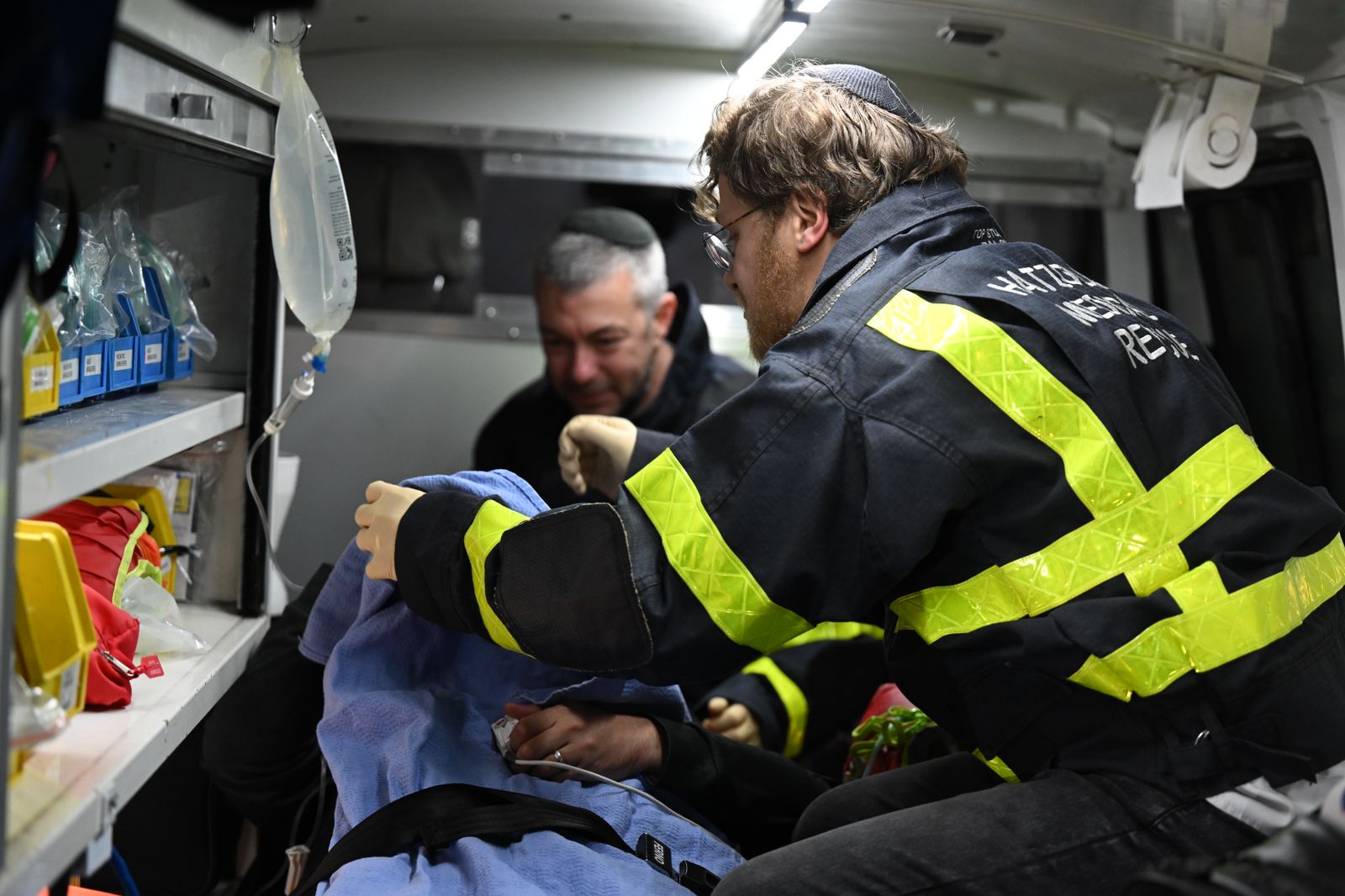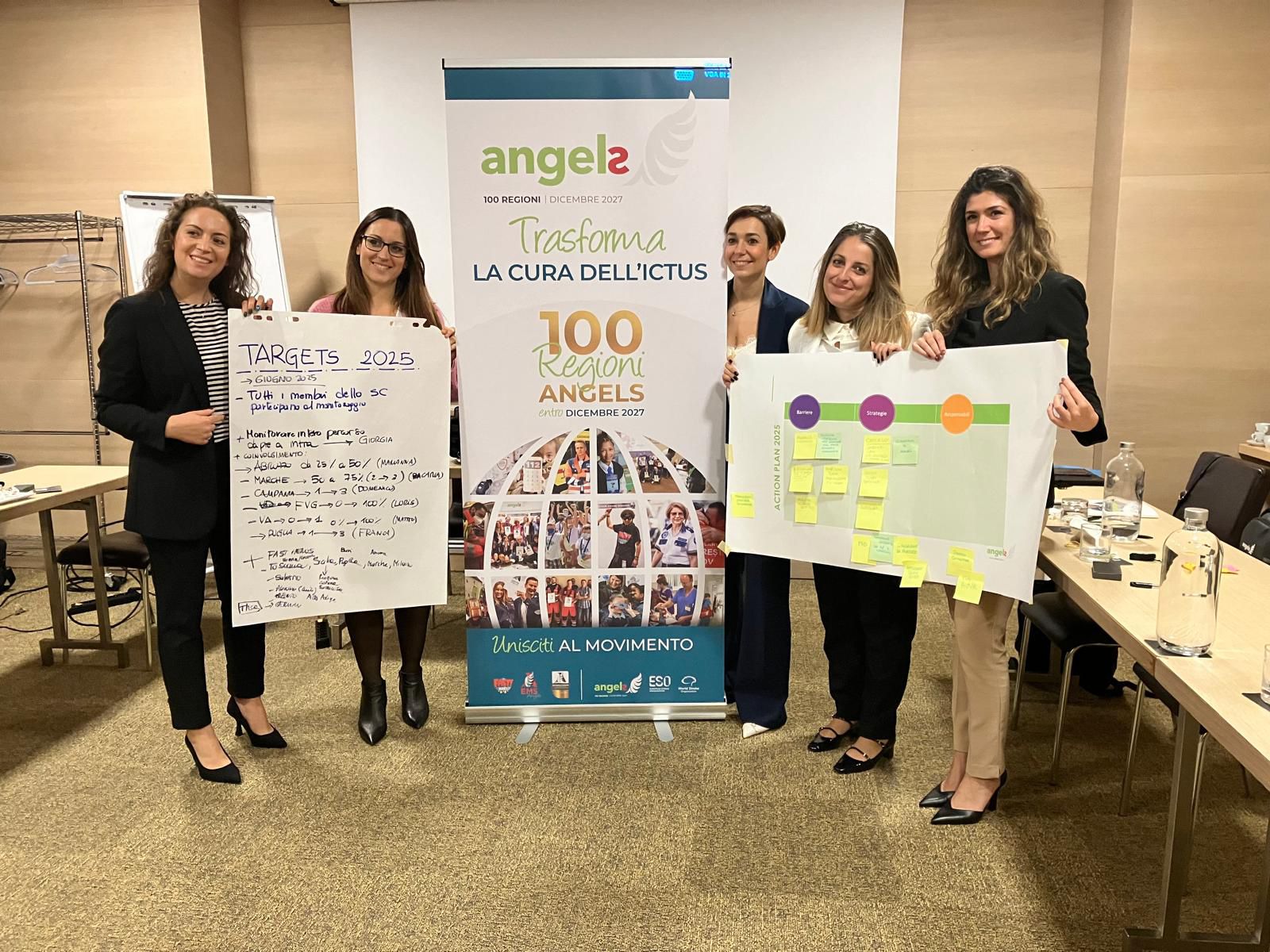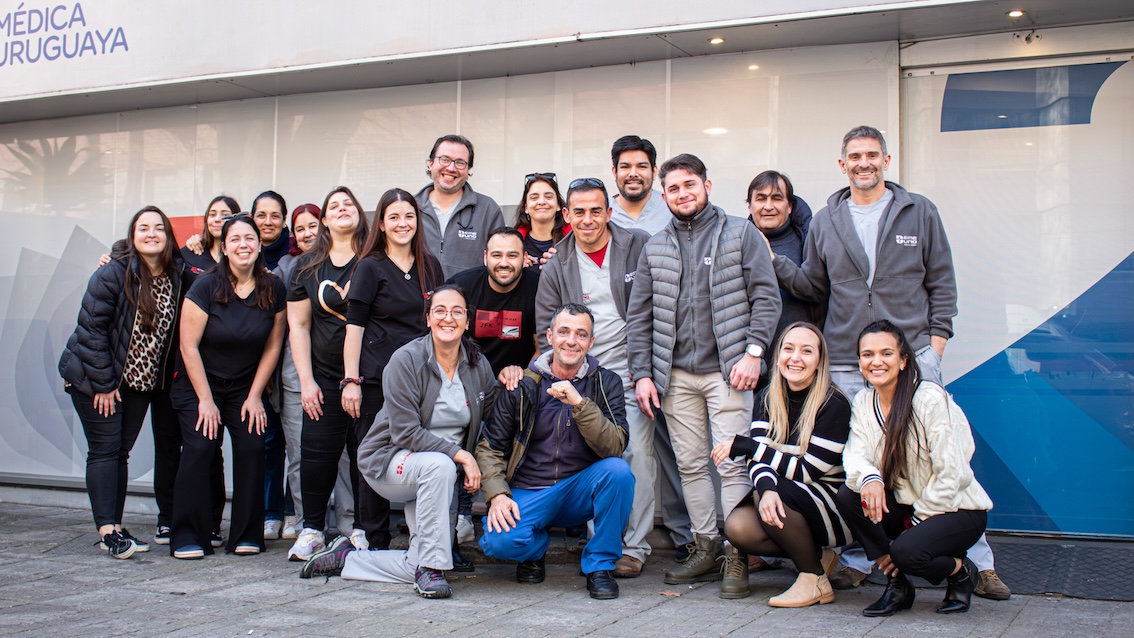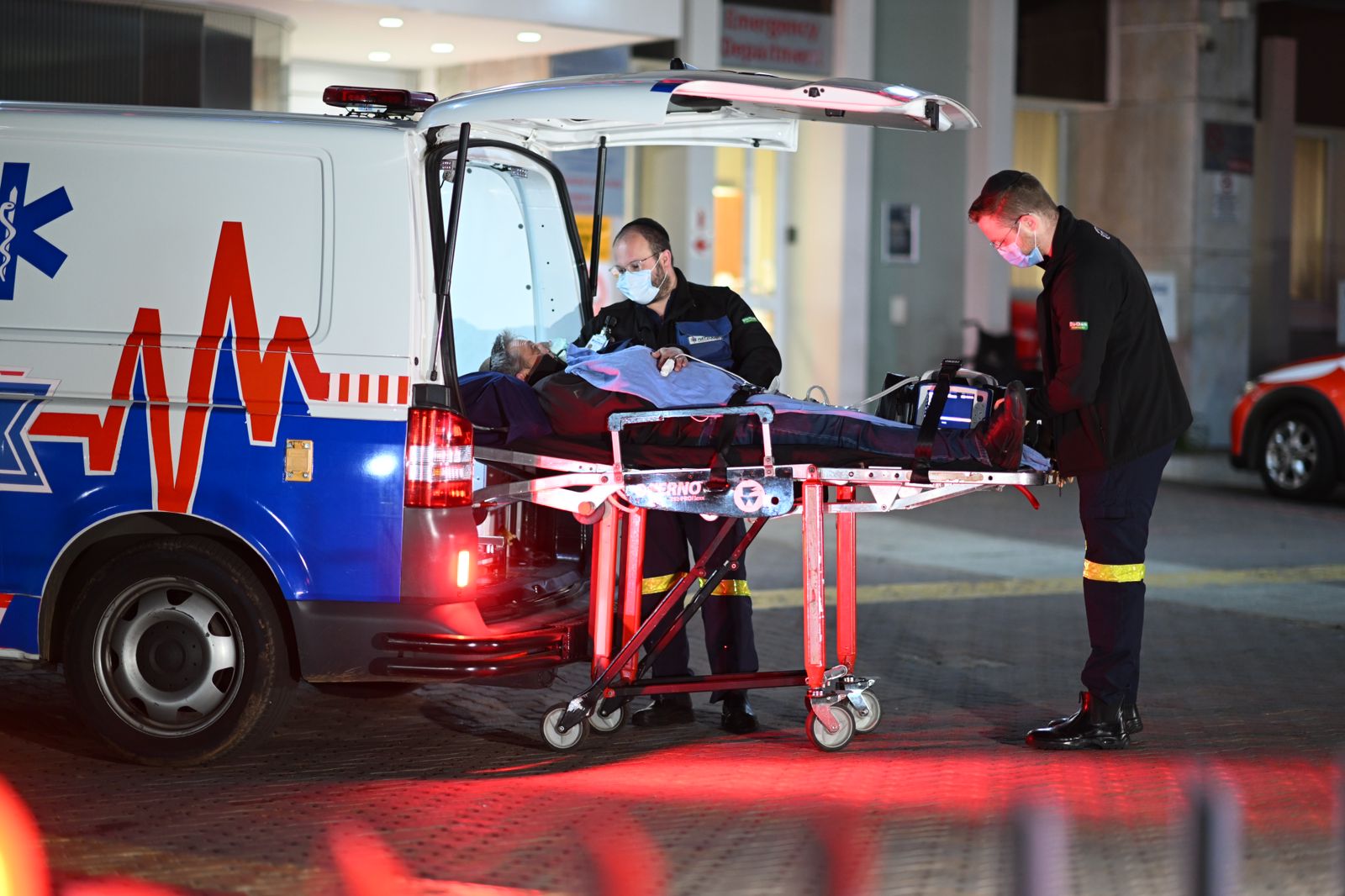
Imagine que é o CEO de uma empresa pública. Está a realizar uma reunião do conselho de administração quando é alertado, através do rádio bidirecional preso ao seu cinto, sobre uma emergência médica nas proximidades do seu escritório. Está a retirar o seu carro do parque de estacionamento mesmo antes de o expedidor terminar a chamada. Nesta ocasião, a emergência está a uma distância tão curta que se vê a entrar nas instalações enquanto o autor da chamada ainda está ao telefone.
Irá passar aproximadamente três a oito minutos no local, período durante o qual irá prestar cuidados de emergência básicos utilizando o equipamento que transporta na bagageira do seu carro. Dependendo da emergência, isto pode incluir verificar os sinais vitais do doente, recolher o seu historial e inserir uma linha IV.
Assim que uma ambulância chegar, a entrega será rápida e perfeita e estará de volta à sala de reuniões em poucos minutos.
Esta não é uma cena de uma série Netflix, mas uma situação real que pode ocorrer até sete vezes por dia, ou 2500 vezes por ano, para membros voluntários de uma pequena comunidade e serviço de emergência baseado na fé na maior cidade da África do Sul, Joanesburgo. A partir das fileiras de canalizadores e eletricistas, médicos e enfermeiros, professores e estudantes e CEO, os 62 socorristas voluntários formados e equipados são uma das razões pelas quais os tempos de resposta da Hatzolah Medical Rescue medem entre 30 segundos e cinco minutos. O outro é que o serviço opera dentro de uma área geográfica definida localizada a nordeste do Metro de Joanesburgo em agrupamentos de subúrbios com comunidades judaicas substanciais.
Além dos respondedores voluntários, existem também três paramédicos de suporte de vida avançado (ALS) a tempo inteiro e seis médicos de suporte de vida intermédio para equipar as três ambulâncias de Hatzolah. Existem três expedidores a tempo inteiro que recebem chamadas durante o horário normal de expediente e 23 expedidores voluntários que trabalham com os telefones após o horário de funcionamento e aos fins de semana.
E há uma sensação que todos os membros partilham, diz Uriel Rosen que, além de ser gestor de operações e a ALS paramedic também é voluntária. “Preocupamo-nos com a vida. Está na nossa cultura e na nossa religião, expressa como a ideia de que “quem salva uma vida salvou todo o mundo”. Vivemos as nossas vidas com isso e os nossos voluntários são impulsionados e sustentados por um objetivo partilhado e um altruísmo que não conhece limites.
“O nosso objetivo é ajudar as pessoas da melhor forma e da forma mais rápida possível.”
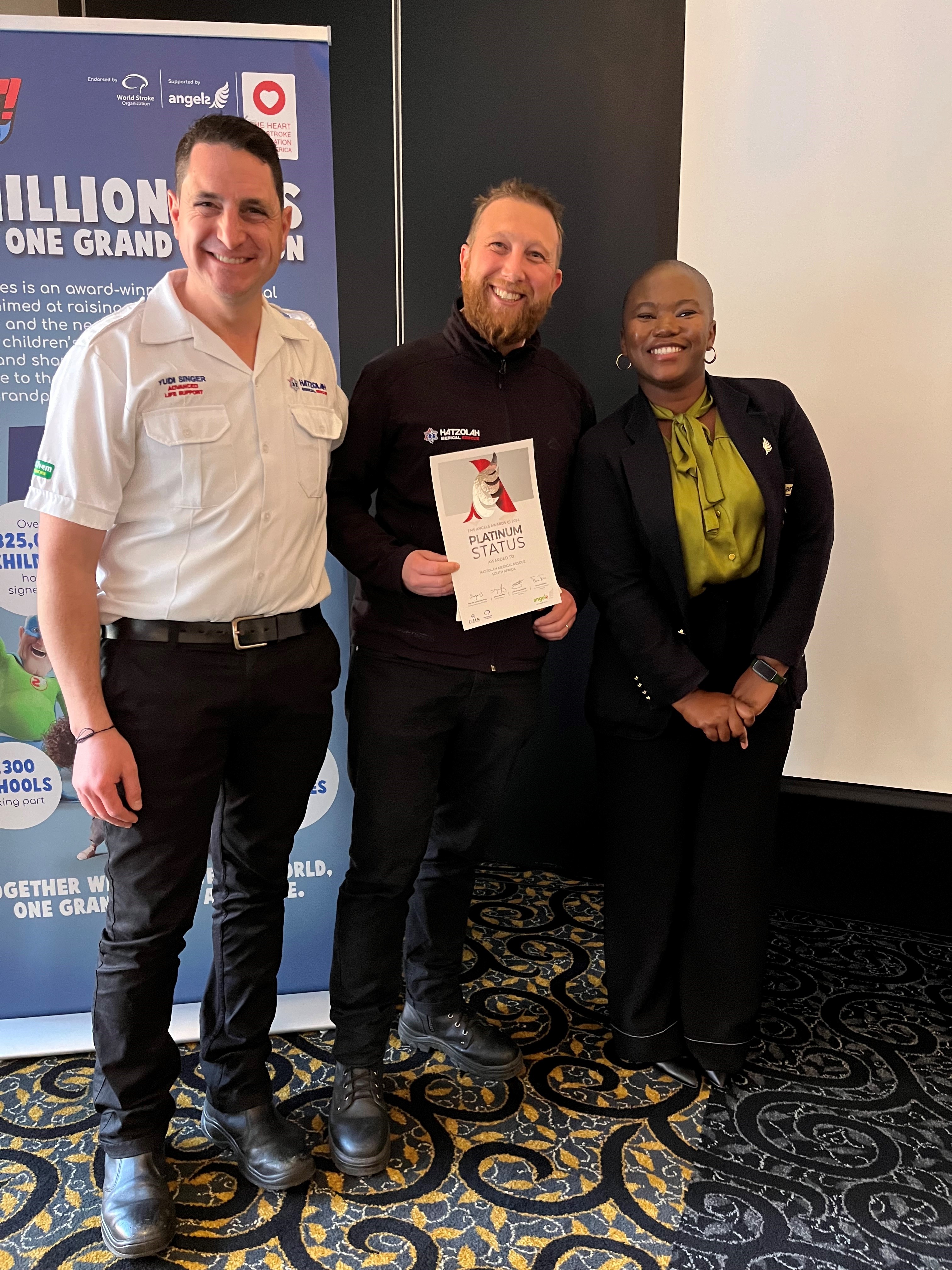
“Melhor” e “mais rápido” foram o que levou a Hatzolah a tornar-se o primeiro serviço médico de emergência na África do Sul a receber um Prémio Diamante EMS Angels, uma distinção que ganharam no segundo trimestre de 2024. Tinham trabalhado na gestão do AVC há anos, diz Yudi Singer, gestora médica, ALS paramédica e voluntária. Isto incluiu a formação de simulação, propagando a ideia de que o tempo é o cérebro em todo o sistema, selecionando e pré-notificando o hospital preparado para AVC mais próximo, usando a lista de verificação pré-hospitalar Angels para que não haja atraso na transferência de informações e, sempre que possível, levando o doente diretamente para a TC.
Foi nos hospitais de Joanesburgo que a consultora Angels, Wendy Mandindi, ouviu falar pela primeira vez sobre o trabalho “espantoso” feito por Hatzolah – não apenas hospitais nas redes privadas de cuidados de saúde, mas também em instalações estatais como o Hospital Académico Charlotte Maxeke perto do centro da cidade.
“Mas não se aperceberam do quão fantásticos eram,” afirma Wendy. Foi uma batalha ascendente persuadindo Uriel e Yudi de que a sua organização poderia ser elegível para um prémio para o qual os candidatos devem enviar dados para 30 doentes de AVC consecutivos por trimestre. Quando Uriel insistiu que eles “não tinham os números”, Wendy chamou reforços.
Pouco tempo depois, Uriel recebeu uma chamada de um especialista em medicina de emergência cuja unidade também estava a concorrer a um Prémio EMS Angels.
“Juntem-se à RES-Q”, exortaram. “Enviar os seus dados, precisamos de concorrência!”
Foi necessário outro telefonema e finalmente uma emboscada para Uriel mudar de ideias.
No 18 Março 2024, Wendy e o seu co-conspirador compareceram na sede de Hatzolah, decididos a não aceitar uma resposta. Juntamente com Uriel estudaram as planilhas do trimestre e até as 16h o veredicto estava em: Hatzolah estava a uma distância impressionante de um Prémio EMS Angels e ainda faltava mais um mês antes do prazo do primeiro trimestre.
Uma supervisão administrativa impediu-os de ganhar um prémio de diamante imediatamente. Em alguns casos, a equipa omitiu-se para anotar o nome da pessoa que contactou para notificação prévia. Mas não haveria um único campo de dados vazio no segundo trimestre.
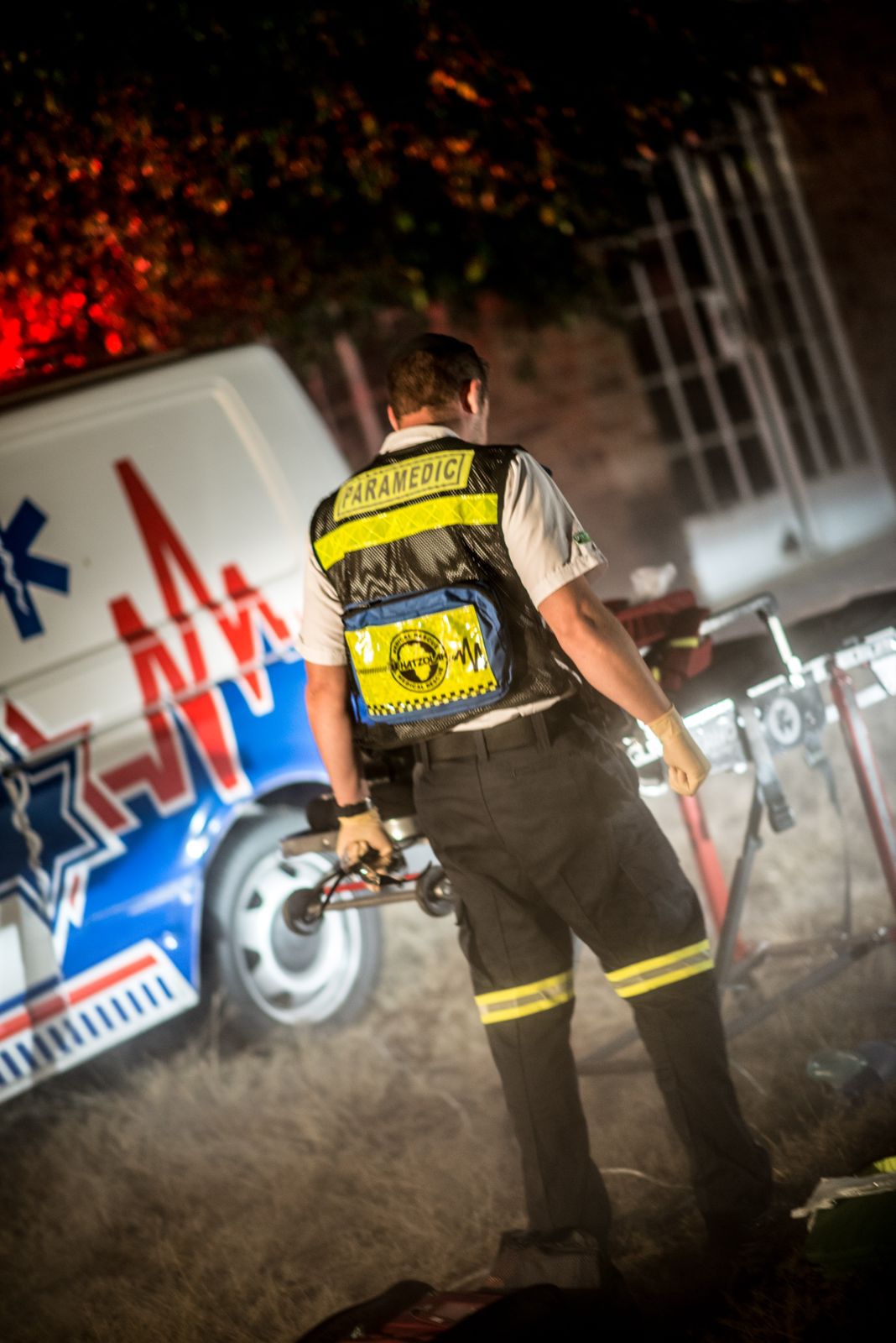
Yudi e Uriel, que são amigos e colegas, ouviram a chamada das luzes e sirenes desde cedo.
A mãe de Uriel diz-lhe que poderia identificar ambulâncias pelas suas sirenes a partir dos três anos. Por fim, transmitiu uma paixão pela medicina para o trabalho de emergência e, em 2007, mudou-se de Israel para a África do Sul, onde o seu objectivo era juntar-se ao capítulo de Joanesburgo de Hatzolah.
O pai e o avô de Yudi eram ambos médicos, mas ele sabia, mesmo antes de chegar à escola secundária, que seguiria um tio para cuidados médicos de emergência. Ele diz: “Passei muito tempo a “perseguir ambulâncias” enquanto estava no ensino secundário. Fiz um curso de primeiros socorros assim que consegui e fiz voluntariado para o serviço de ambulância, percorrendo aos fins de semana; achei isso emocionante e estimulante.”
Fez formação logo após a escola e juntou-se à Hatzolah assim que possível. Ele sempre gostou de ajudar as pessoas, diz. “Há muito que acontece nos bastidores, uma vez que, dia após dia, tentamos melhorar. Não se trata apenas de levar o doente de um para b, mas também de proporcionar conforto, dignidade e cuidados aos doentes, ao público.”
Também há muita aprendizagem nos bastidores – formar a sua equipa, educar a comunidade, expandir os seus próprios conhecimentos.
Atualmente inscrita como estudante de pós-graduação em atendimento de emergência, Yudi observou que há mais ênfase na colaboração entre os prestadores de cuidados pré-hospitalares e hospitalares. Ter um objetivo partilhado é “extremamente necessário”, afirma.
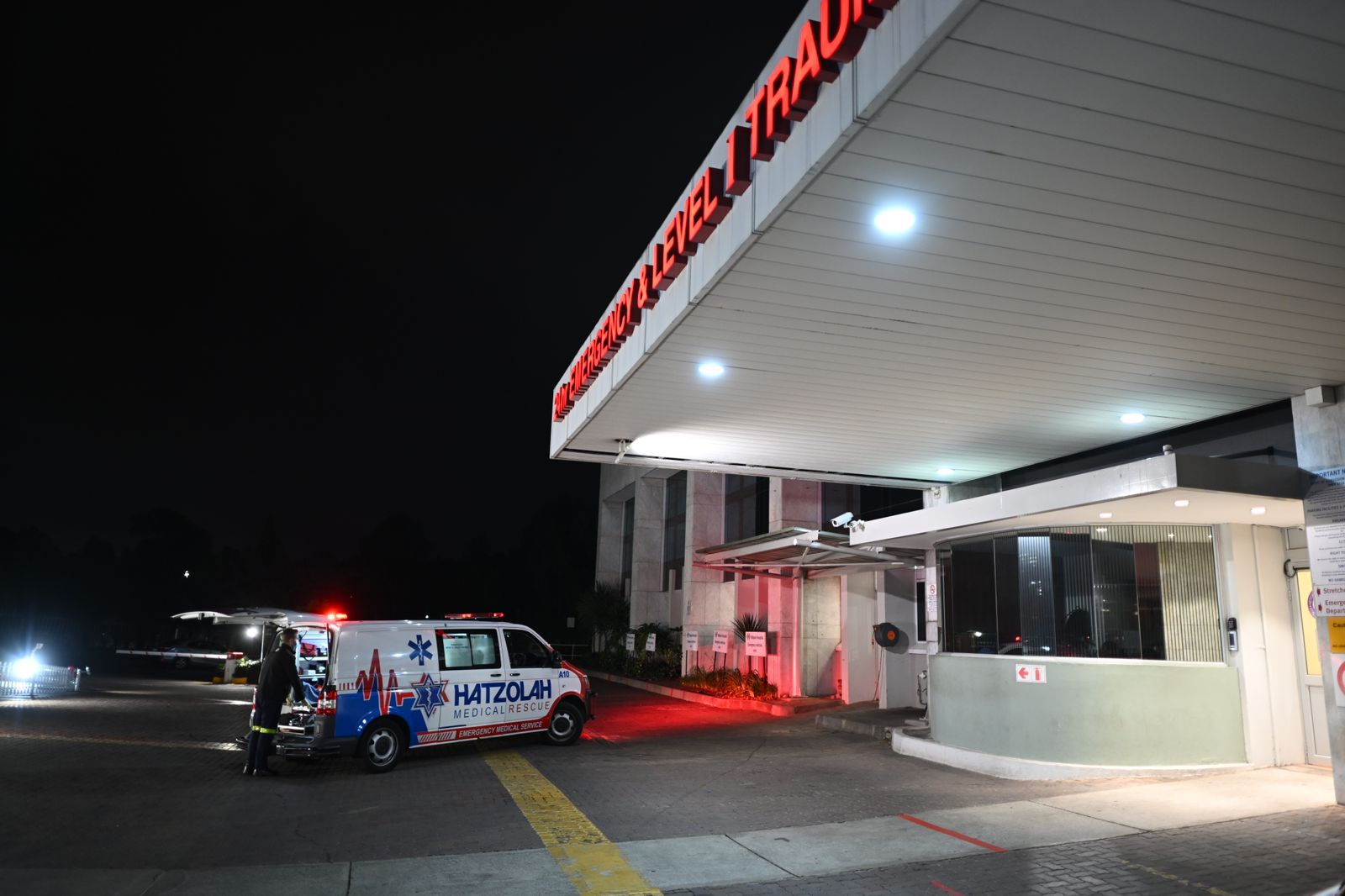
As histórias que partilham sobre casos que se destacam têm duas coisas comuns – acabam felizes, claro, e refletem sobre a relação entre o hospital e o EMS. Yudi lembra-se de ser convidado na casa dos seus sogros quando o seu trabalhador doméstico teve um AVC. Reconheceu instantaneamente os sintomas e levou-a no seu próprio carro para “Joburg Gen”, uma vez que o Charlotte Maxeke Hospital era então conhecido. O momento destaca-se pelo tratamento extraordinário proporcionado por um hospital estatal sobrelotado. Ele diz: “Não consigo explicar quão impressionado fiquei com os seus cuidados.”
Na história de Uriel, o sapato está no outro pé. Há cerca de três ou quatro meses, apressaram-se a cuidar de um doente cujo único sintoma era visão turva num lado do olho e cujo único historial era um problema de coagulação ainda não tratado. Durante o percurso para o hospital, ligaram antecipadamente para informar que o doente tinha sofrido um AVC.
Uma enfermeira do pronto-socorro feriu ao seu diagnóstico, mas um médico interveio, dizendo: “Confiamos em vocês. Se disser que é um AVC, acreditamos que.” Após tratamento para AVC a doente teve alta cinco dias depois, a sua visão foi completamente restaurada.
Algo mais que Uriel e Yudi têm em comum é a forma como relaxam ou não. Para descontrair, têm de viajar para uma área sem sinal de telemóvel – porque desligar os telemóveis não é uma opção.
“Na verdade, gostamos do trabalho,” afirma Yudi. “Queremos trabalhar todos os dias e encontrar mais formas de melhorar, formas de fazer as coisas de forma diferente, mais coisas que podemos fazer.
“Claro que o tempo fora é precioso. Mas o nosso trabalho também é precioso.”
